Genesis G90 first drive impressions: world-class driver enhancing tech
It brakes, it steers, and it showcases the power of tech in automotive safety
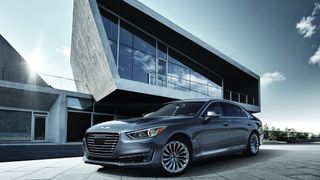
Oftentimes, it's easy to judge a car's technological prowess by peeking the center stack. How big is the display? How many buttons are littered with icons that look faintly futuristic? What's the USB-port-to-cup-holder ratio?
The Genesis G90 requires more introspection, but what sits behind a big, bold, ridiculously polished exterior is a universe of automotive technology that does a lot more than entertain.
Launching luxury
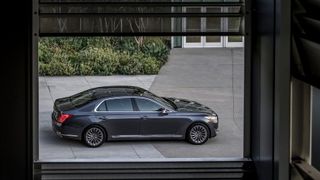
The Genesis name has a tight history with Hyundai. Motoring enthusiasts will no doubt remember that the company's self-proclaimed premium sports sedan went on sale during the 2009 model year, but something interesting happened in November of last year. It was at that point that Hyundai announced that the Genesis brand would be spun off into Genesis Motors, making it just the second luxury automobile brand to launch in the 21st century behind Tesla.
And so, here we are. The big-but-not-enormous G80 sedan is Genesis' first car, with initial units hitting US dealer lots as we speak. The hero device, as it were, is the Genesis G90, which we were able to poke, prod, and rev through 290 miles of British Columbia's finest scenery. It's expected to go on sale this fall, competing with the likes of the Lexus LS and Mercedes-Benz S-Class.
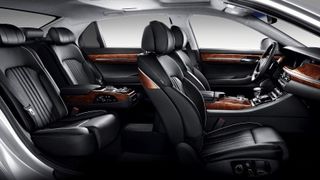
Let's just get this out of the way: Genesis executives weren't ready to talk pricing, which makes it impossible to properly critique the G90's value. That said, it's not terribly hard to extrapolate what the range may be. The Genesis G80 is around 10 percent cheaper than the Lexus GS it rivals. The Lexus LS - which the G90 rivals - starts at around 72 large, and if the Genesis G90 doesn't ship at around 5 to 10 percent less than that, we'd be surprised.
When tech becomes safety
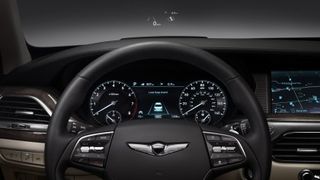
Erwin Raphael, the General Manager at Genesis Motors, made clear how proud he was to include more standard safety features in the Genesis G90 than any other rival. "We asked ourselves if we wanted any G90 to be less safe than another, and we settled on 'No'." In fact, you only get two options with the G90: the all-new 3.3-liter, twin-turbo V6 or the roaring 5.0 V8, and a choice between rear-wheel drive (standard) and HTRAC all-wheel drive (optional).
It's not often safety differentiates a car for a tech-minded buyer, but here, it does. The team's best and brightest engineering minds have installed an automatic emergency braking system with pedestrian detection, adaptive cruise control with stop/start, and a unique two-stage lane keep assist. There's more, of course, but we need to pause right here for a second.
Get daily insight, inspiration and deals in your inbox
Get the hottest deals available in your inbox plus news, reviews, opinion, analysis and more from the TechRadar team.
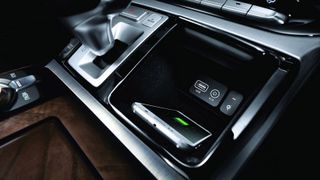
We drove on a variety of roads - from Vancouver's clogged city streets to the busy-but-moving Highway 1 to small-town backroads to the mountainous climb that is Highway 5. If you've never driven a vehicle with adaptive cruise control, you'll be spoiled rotten in the Genesis G90. You set a speed per usual using the steering wheel controls, and you then toggle between four distance levels that you're comfortable with. These levels determine how closely (or not) the G90 will follow the car ahead of you.
It's one thing to set your cruise at 70 and stretch out, knowing that the car will intelligently (and so, so smoothly) slow down and speed up based on the ever-changing flow of traffic. But it's another thing to have a trailer swing recklessly into your lane and feel the car slow itself as strongly as possible without introducing sway or impacting control, beeping to alert you of a cross-traffic anomaly, controlling the wheel as to keep you planted in your lane, and then gradually regain speed as the renegade in front of you punches the pedal.

